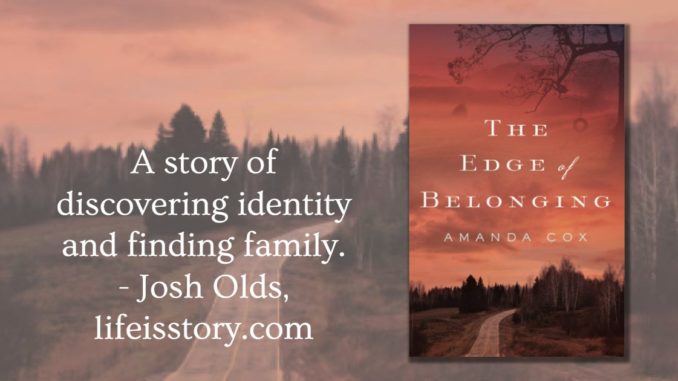
Published by Revell on September 8, 2020
Genres: Fiction, General
Buy on Amazon
Goodreads

When Ivy Rose returns to her hometown to oversee an estate sale, she soon discovers that her grandmother left behind more than trinkets and photo frames--she provided a path to the truth behind Ivy's adoption. Shocked, Ivy seeks clues to her past, but a key piece to the mystery is missing.
Twenty-four years earlier, Harvey James finds an abandoned newborn who gives him a sense of human connection for the first time in his life. His desire to care for the baby runs up against the stark fact that he is homeless. When he becomes entwined with two people seeking to help him find his way, Harvey knows he must keep the baby a secret or risk losing the only person he's ever loved.
In this dual-time story from debut novelist Amanda Cox, the truth--both the search for it and the desire to keep it from others--takes center stage as Ivy and Harvey grapple with love, loss, and letting go.
I wanted so badly to love this book and for three hundred and fifty-nine pages that is exactly what I did. The Edge of Belonging is a story of discovering identity and finding family. You see it in Harvey, a homeless man who finds an abandoned baby. You see it in Rose, who lives in the church’s parsonage even though her pastor husband has gone on and is dealing with loneliness and loss. And you see it in Ivy, who is dealing with an abusive relationship all while she tries to find the truth about her birth family.
The relationships in this story are superbly done—if not as deeply explored as I would have liked—and it’s this relational drama that drives the story. In the present storyline, Rose has died and it’s her adopted granddaughter Ivy who must oversee her estate sale. Among Rose’s belongings is a journal that contains clues to Ivy’s birth family. The only problem? Someone has taken a few vital pages.
The past storyline begins with Ivy’s birth and abandonment alongside the road where she is found by Harvey, a homeless drifter. Harvey has his own experiences with abandonment, having grown up in the foster care system, and doesn’t want to see Ivy turned over to that uncertain fate. Instead, he chooses to keep Ivy and, when he breaks in to a church pantry to steal some formula, he ends up with a job as a maintenance person and a new friend in the old woman who lives in the parsonage. But you can only keep a baby hidden so long and…well…you can figure out the rest.
What broke the book for me was the way in which Ivy found out about her birth family. As an adoptive parent, I find it very important that adopted children are told their adoption stories. There should be no secrets. While that’s not what happens here, the first part of the book set up Rose’s journal like she was investigating the mystery. Rose knows that Harvey found her. Nobody knows who put her there. It seemed like Rose was on to some clues that I thought we’d have to piece together. (Spoilers ahead…)
Nope. Instead, we find that Rose hid a picture of Ivy’s birth mother, that her Uncle Vee is actually Harvey, and that Ivy knew nothing about her adoption story except the fact she was adopted. So the way in which Ivy is told of her adoption troubles me, particularly because it’s not painted negatively. But on top of this, in the form of fiction, the main character has been pursuing a mystery and the answer was as simple as demanding an answer from her parents. It’s a dramatic anti-climax that Cox tries to cover through a couple of last-minute out-of-left-field reveals. It felt as if she got to the end and didn’t know how to write her way out of it and settled on a deeply unsatisfactory answer.
The Edge of Belonging had great characters and potential but ultimately falls short by not knowing how to resolve its own plot. I think the feeling of disappointment in this book is so great because I had fallen in the love with the characters and the story. I kept wondering how it was going to resolve itself. It was a surprising end to an otherwise engaging novel that left me re-reading the final fifty pages because I was sure I’d missed something.
